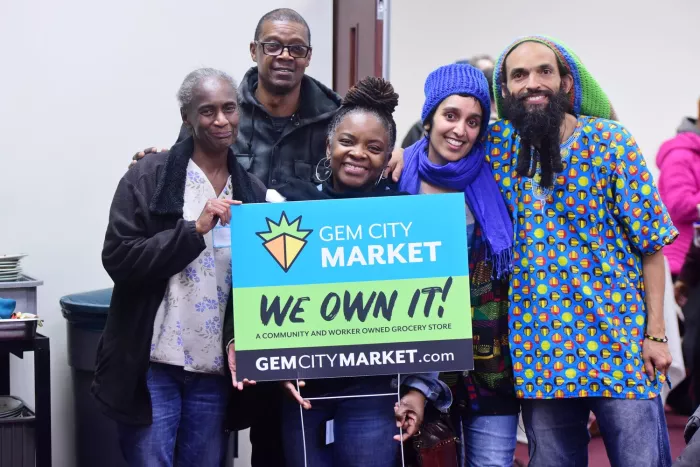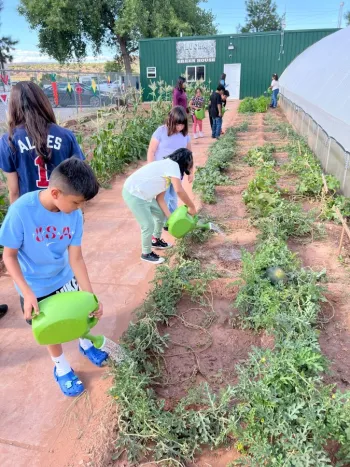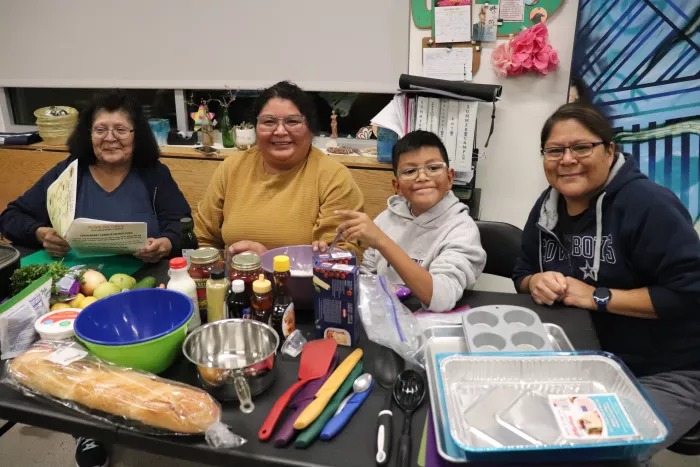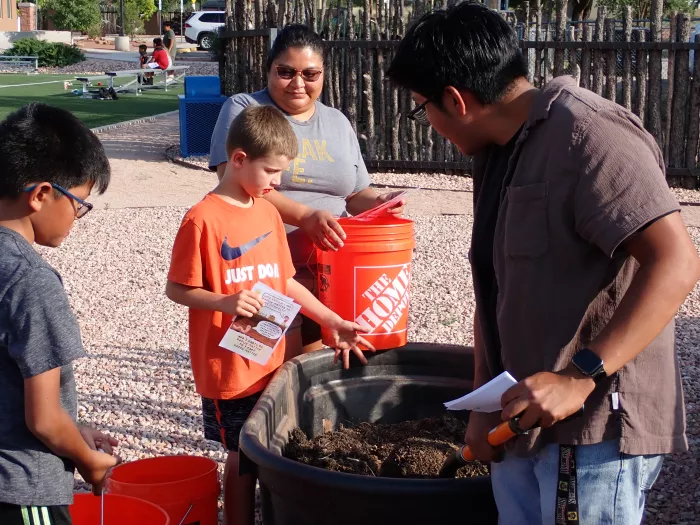
Intergenerational knowledge-sharing and community engagement
Powerbuilding happens not in isolation, but in the collective work of growing and learning together. Whether through youth mentorship, land stewardship, or shared ownership, these programs reflect a deep commitment to long-term change. Many partners emphasized the importance of continuity—across generations and across community networks.
Morgan Muhammad, a community leader with Co-op Dayton, reflects on this continuity, stating:
This type of work has been in our history in America, and I'm sure way beyond what we know..., but a lot of it gets erased. And so I just want to acknowledge that we have ancestors that came way before us that did this work, and I wholeheartedly believe that whether we know our family histories or not, we carry on their genetics and their thoughts and their wishes and their dreams for us.

This perspective underscores the significance of acknowledging and honoring the work of our ancestors, recognizing that their efforts continue to influence and shape our present and future endeavors.

The Zuni Youth Enrichment Project (ZYEP) exemplifies the power of intergenerational knowledge-sharing and community engagement. Through programs that bridge generations, ZYEP fosters a deep commitment to long-term change, emphasizing the collective effort of growing, learning, and carrying the knowledge, resources, and tools to sustain the future.
ZYEP’s Rooted in Healthy Traditions afterschool program “connects youth with intergenerational mentors and Zuni cultural practices. It’s about language, wellness, identity, and joy—fostering holistic health and leadership at every age,” shared Brittny Seowtewa, ZYEP Food Sovereignty Coordinator.
By integrating traditional Zuni practices into after-school programs, ZYEP ensures that youth are not only educated but also grounded in their culture, promoting a sense of identity and belonging.
There is a deep focus on leadership development in ZYEP’s programming to ensure that across community members across generations feel equipped and empowered to share the knowledge they gain with their friends and family. ZYEP has seen an increase in intergenerational relationships through practicing traditional food sovereignty activities. Leadership is truly emphasized across all ages ZYEP works with, ensuring an engaging and inclusive community.

Brittny describes intergenerational knowledge sharing at ZYEP as, “We have elders teaching traditional arts, 16–24-year-olds leading activities, and kids guiding their families through garden projects and cook nights. That’s the power of it: leadership grows in every direction.”
Participants have been deeply impacted by the programming, emphasizing the significance of shared activities in strengthening family bonds and reconnecting cultural roots. Through initiatives like the garden project and cook nights, families engage in meaningful interactions that reinforce their identity and power as a family and community.
We have been participating in ZYEP's garden initiative and family cook night for at least three years now – Robin has been involved in summer camp and sports as well. It brings us together as a family in different ways and we connect by doing different things that we normally would not do on a regular basis, which gets us out in the community. This brings us closer to who we are as A:shiwi people because of the garden initiative and knowing that we have been gardening for millenia and brings us closer to our roots and brings our family together. We take pride in what we do.
- Chelsea Banteah, mother of a youth participant
Karen Poncho, mother of a 9-year-old participant, shares that the program has allowed for gardening techniques that are often lost, to be shared and be passed down to the younger generations. She goes on to say, "I like to learn about the older, traditional techniques of gardening. They have been lost throughout the years, but the younger generation is now taking initiative to learn and teach other people, modernizing everything but still keeping it traditional."
This insight underscores the importance of preserving traditional knowledge while allowing flexibility for the younger generation to make adaptations to contemporary contexts. By learning and teaching traditional gardening techniques, the younger generation ensures that cultural practices are maintained and passed on, bridging the gap between past and present.
We think seven generations ahead, and we think back seven generations too. That’s how we build the future—by keeping our traditions alive in the hands of the youth.
- Brittny Seowtewa, ZYEP Food Sovereignty Coordinator

This perspective reflects a profound commitment to sustainable and generational impact. Considering the impact on future generations, ZYEP emphasizes the importance of preserving traditions and knowledge, ensuring that future generations inherit a rich cultural legacy. ZYEP’s programs and community engagement efforts illustrate the transformative power of intergenerational knowledge-sharing by fostering connections across generations. Every day, ZYEP is helping to preserve cultural practices and empower individuals to contribute to a resilient community.

